Women and feminists are often confronted with questions about their activisms when a mainstream political crisis hits the country. Be it the abrogation of Article 370 in Kashmir, the economic crisis or the recently passed Citizenship Amendment Act, feminists are interrogated with suspicion, and disbelief about their participation in the said act of protest or resistance. They are asked—what has the Citizenship Amendment Act to do with feminism?

I hope this article is an answer to such questions and a resource for all the feminists out there, who are confronted to such absurdities. Note of caution: ideally, no feminist should have to take on the task of explaining “the obvious” to any idle curious soul out there. However, since my rage is at its peak and I believe I could attempt to answer such questions to a certain extent, on behalf of all the unputdownable feminists, fighting and resisting against state and police brutalities on the streets and in university campuses, here is my response to the unsolicited probing.
What Have Feminists Got To Do With Citizenship Amendment Bill/Act?
Well yes. It is not rape. I know most of you expect feminists to speak up or protest when, and only when a rape occurs. Of course, rape of Dalit, Adivasi, queer, trans, rural, Muslim women and sex workers do not qualify to your expectations of an acceptable rape case. Unless there is a dead, sexually violated body of a “well-behaved” woman, we are not entitled to your sensationalist mindless outrage. But this is not rape. How come feminists have anything to do with an Act that enacts surveillance over citizenship? Which consequently also reads as, how is citizenship a feminist issue?
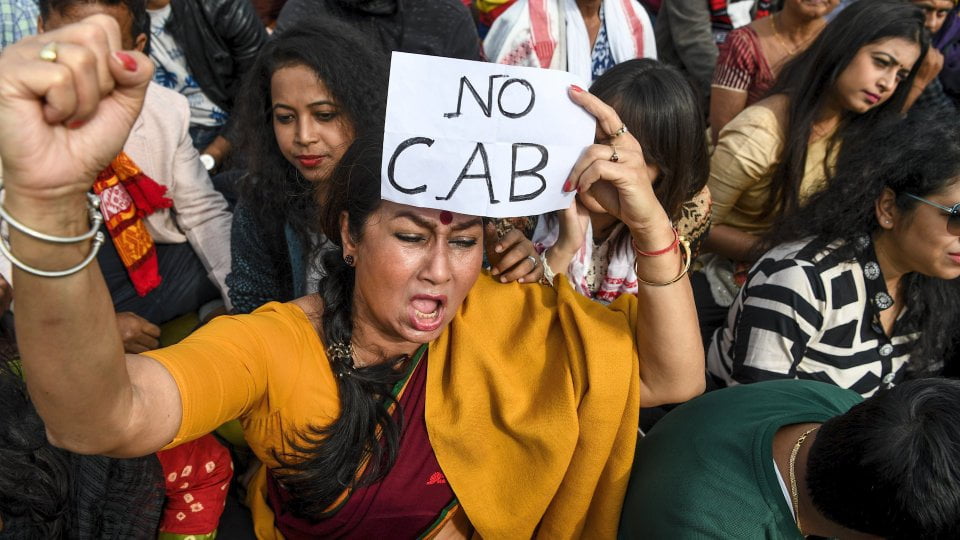
Although I believe that most people do or will prefer to consider women (because feminists equal women) as allies/partners/added responsibilities to the “real citizens” of India—men— women constitute 48.20 percent of the country’s citizenry. This includes Muslim women and women from the North East, who are currently subjected to state violence and terror and are fighting through the oppression institutionalised by the right-wing BJP government. They are as much citizens of India as the men, and any changes in the economy, society or legislation have direct consequences on the lives of these women.
Their citizenship is at stake, and the structural-patriarchal apparatus proliferates their vulnerabilities. History is witness to how women have been used as passive props and sexually harassed as per convenience, when ruthless men fight against each other in the name of religion, caste or ethnicity.
Their citizenship is at stake, and the structural-patriarchal apparatus proliferates their vulnerabilities. History is witness to how women have been used as passive props and sexually harassed as per convenience, when ruthless men fight against each other in the name of religion, caste or ethnicity. The state-sponsored pogroms, like the Godhra riots of 2002 led to multiple cases of gender-based violence. The Citizenship Amendment Act is meant to incite such communal divisions and pits diverse groups against one another, in order to lead us to a war-like situation, thereby endangering the lives of people who live in the margins of the margins—the women. Hence, women have every reason to oppose and participate in the protests and feminists have the social responsibility of preventing any such cases of impending state-enabled violence.
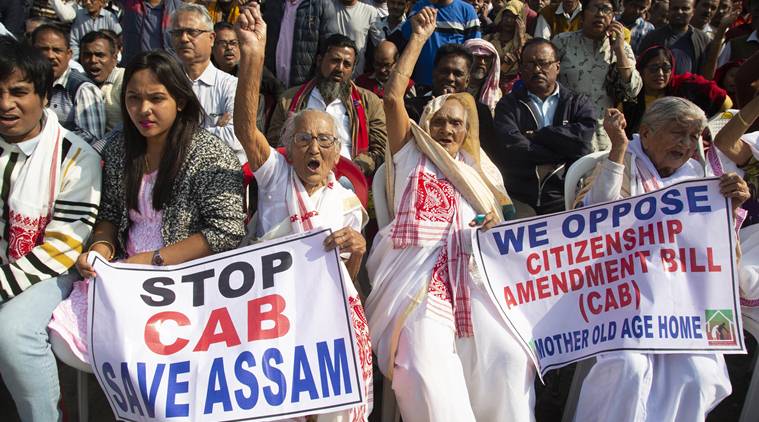
Mainstream Politics Is A Feminist Concern
While I understand that women and minorities are poorly represented in the political bodies and spaces, such as the Indian Parliament, it certainly does not mean that mainstream political decisions are not feminist concerns. It is a patriarchal venture to structurally exclude the voices of women in public spaces and in civil society bodies, that paints a picture of a male-dominated and sanctioned state. However, feminist politics constitutes and is constituted by mainstream political judgements, like the Citizenship Amendment Act that would shape the overall macro-structures of political developments and the micro-polities of everyday life experiences of women and the people around them. Hence, the Citizenship Amendment Bill/Act, even though perceived as, cannot be a gender-neutral policy that excludes or neutralises the lives of women and other minorities.
Even though, the public sphere still resists active participation of women and minorities, our collective ignorance about the impact of fascist policies on these lives will only perpetuate the gendered divisions of labour and the chronic violence that succeeds these policies. The male-streamed essentialism of public policies need to be challenged, and since, concerns about the Citizenship Amendment Bill is ‘gender-blinded’ or neutralised by both the ruling party as well as the oppositions, feminist intervention becomes crucial, decisive and mandatory.
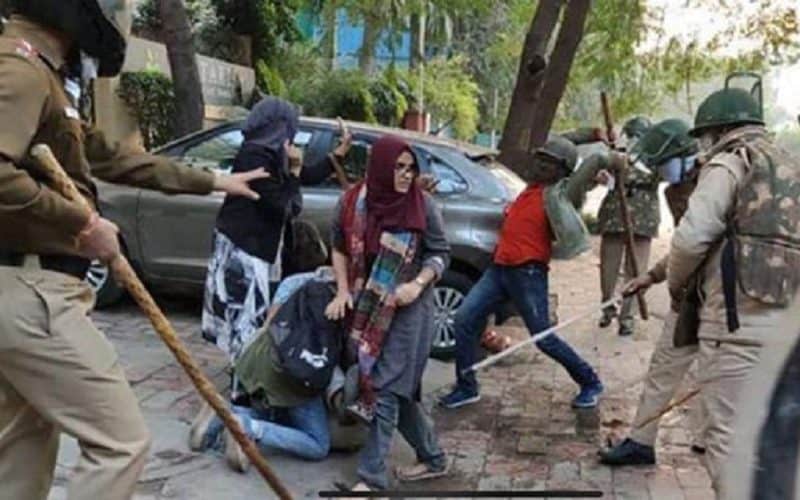
The National Register Of Citizens (NRC) enlists an array of documents that need to be presented to the government to verify the citizenship of migrants and refugees. Out of the two lists, list A includes land and tenancy records, permanent residential certificates, bank or post office accounts, board or educational university certificate and few other documents. The above mentioned documents should not be read as gender-neutral, since women from time immemorial have been excluded from obtaining civic rights in this country. They were and still are restricted from holding land or property rights, bank accounts and were structurally discouraged from accessing even primary or secondary level education, until very recently.
The Citizenship Amendment Act that promises to “protect” its citizens from exclusion in the NRC list, would grant Indian citizenship by categorically demanding the “proof” established by these documents. And, it is of no surprise that most women will fail to show these documents, as a result of not owning them in the first place, and they will be rendered dependent on the men they are parented by or are married to, to be able to prove their citizenship. The NRC and the CAA is stitched through the rigid threads of patriarchy, which is already prejudiced into thinking them as second-class citizens, whose citizenship is not sheltered from misogynistic ties of their fathers or husbands.
Feminist Concerns Are Not Synonymous Solely To “Women’s Concerns”
Women’s lives are not discrete, detached or independent of the people around them, including that of the men. Their everyday experiences are inherently interconnected with the lives existing within the institutions of family, work or marriage. Although, dominant and popular discourses would suggest that “feminism is solely about women’s rights and concerns”, the feminist realm have moved beyond such stereotypes. Every domain of life, be it society, polity, economy, religion, etc., is a part of the feminist movement.
The Citizenship Amendment Act has the potential to incite a war-like situation, which will be manifested through competing male-egos and absolute disregard for humanity. Such masculinities of the state will only lead to the strengthening of an exclusivist and patriarchal society, that will curb the rights of the minorities, be it women, Muslim people, non-binary people, Dalit people or people with disabilities.
The feminist movement holds in disdain any domain of the society that is constructed on grounds of male-dominance and patriarchy. The Citizenship Amendment Act has the potential to incite a war-like situation, which will be manifested through competing male-egos and absolute disregard for humanity. Such masculinities of the state will only lead to the strengthening of an exclusivist and patriarchal society, that will curb the rights of the minorities, be it women, Muslim people, non-binary people, Dalit people or people with disabilities.
Also read: Protests Erupt Against CAA And The Violence Against Students In India
The Transgender Community, The Trans Bill And The CAA
The other exclusionary Bill (now an Act) that claims to secure citizenship rights, has recently been passed is the Transgender Persons (Protection of Rights) Bill (now an Act), 2019. This Bill promises to grant citizenship to Trans people, only if they can show medical documents of their “transition”. It demands Trans people to conform to the hetero-patriarchal gender binary and denies them their Right of Self Determination. These certificates need to be produced by medical officials and has to be further attested by the District Magistrate of their locality. The struggle is doubly burdened as most of them have fleed their homes and families, adopted new identities, including new names and surnames, in order to escape the transphobic, hetero-patriarchal society.

Minorities, within the Trans communities will have it worse, as their intersectional modes of oppression will subject them to more surveillance and state violence. Muslim, Dalit, Dalit-Muslim or poor Trans people’s citizenships will be scrutinised to a greater extent. Gender, which is a key category in most of these documents will be policed and, worst case, Trans people, even the ones who have access to those documents will be denied of citizenship of India. This Act, along with the Citizenship Amendment Act demands to trace our parochial and patriarchal lineages, even if we have cut ties with or fled the discrimination exercised by our families.
Conclusion
Creating uncertainties with regard to citizenship within the structure of the nation-state, which is historically male-dominated and is anti-minority, has become a global agenda by most of the fascist groups and governments. The introduction of the Citizenship Amendment Act is not simply an acute change in our everyday, but it is a mode of structural surveillance through which bodies, especially of the people from minority communities will be kept under strict surveillance, only to perpetuate the process of minoritisation. It will throw them on the edges and pit diverse minority groups against one another, within the marginal spaces of the already institutionalised margins.
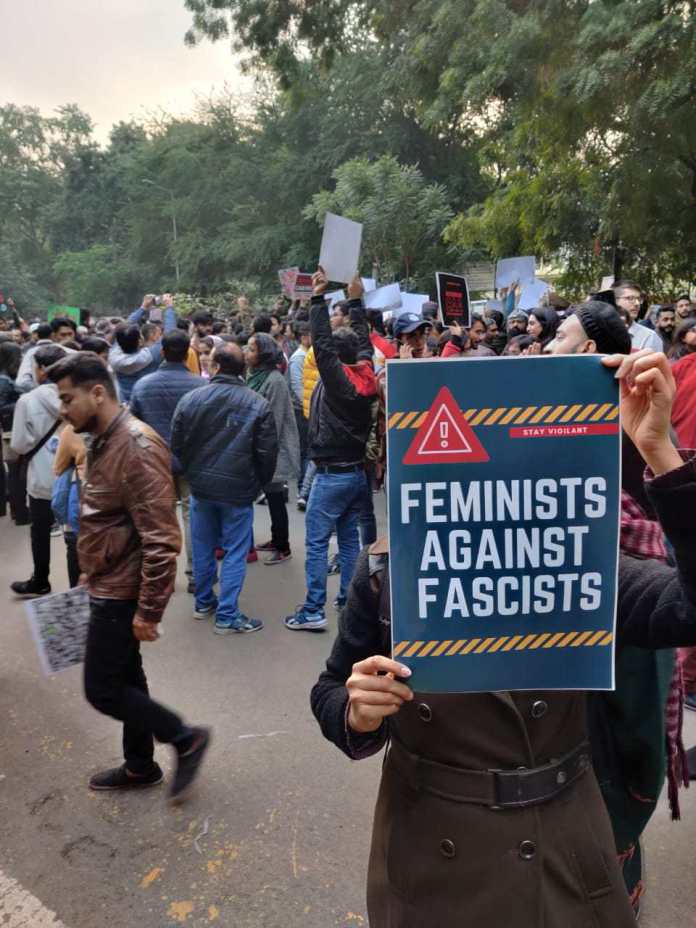
The sustenance of such discriminatory processes will change the social fabric of our democracy, whereby it will no longer be defined by freedoms, but by our unconditional conformity and submission to the dominant power structures and the government. Democracy will be redefined as anti-minority, the state will be hetero-patriarchal and our governments will legitimise itself as an irresponsible, unaccountable and unanwerable body of ordinance.
Also read: Who Turned The Peaceful Protests Violent In Jamia Millia Islamia University?
Before the country falls into such grave totalitarianism, feminists of India, UNITE!
Featured Image Source: Ahmer Khan
About the author(s)
Pragya is a Master's Graduate in Sociology from Jawaharlal Nehru University. She works as the content editor at Feminism In India. She is also a ramen enthusiast, a hummus mother, a postcard hoarder and a wannabe cat lady. She still prefers writing on her notebooks, rather than on her laptop, but her job demands her to do just the opposite. Her favourite season is spring, and her alter ego is that of Mrs. Dalloway who said, "She would buy the flowers herself", in case no man ever buys her any!
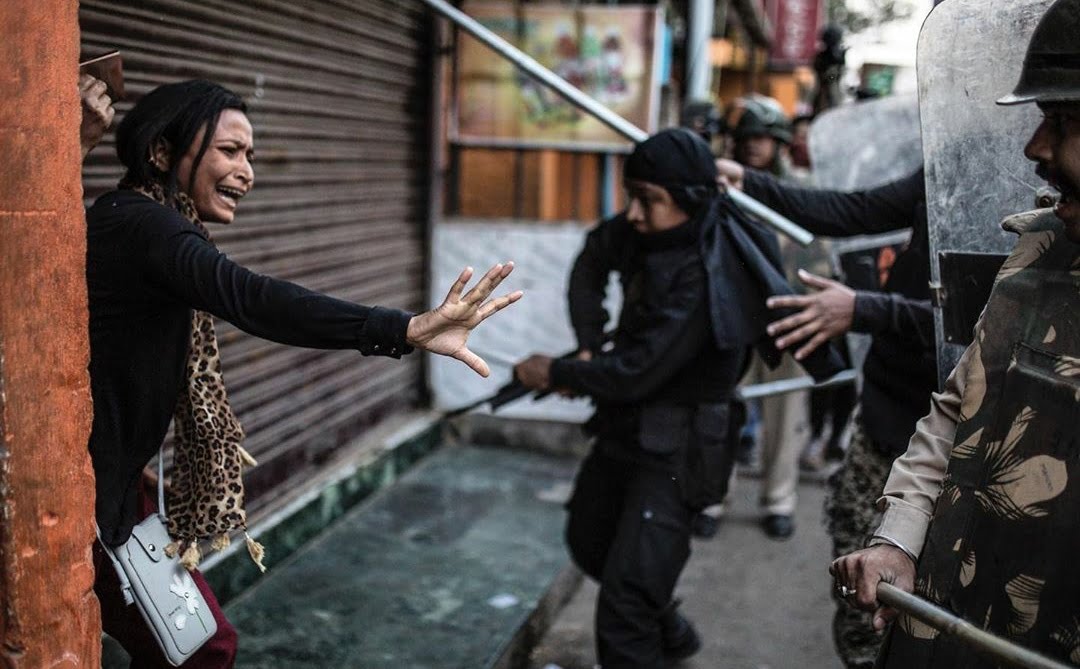




Is there any chance to Feminism in islam and whether islam allows Feminism?
If any Feminists are going for abrogation of CAB, then they are digging their own grave .
Im not too sure whether Hinduiism ‘allows ‘ feminism either. Most feminnists subscrobing to Hindu thought and religion in India would have to carve out their own unchartered paths through tbe faith and those would not be acceptable or sanctioned by Hindu society.
An eye opening article. Never thought of the after effect of the male dominance in the resistance of many reformative movements both in past and present. Very insightful. Thanks Pragya.
Its true. Take any war or riot. (Gujrat riots hi le lo) Rape is used as a terror tool. Women will be raped and children murdered. Gender fluid people will face identity crisis.